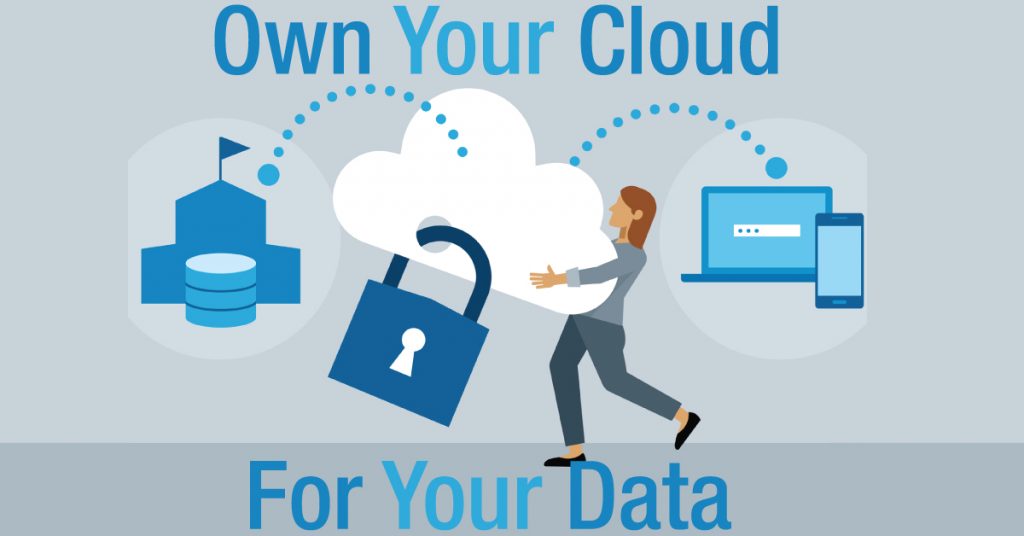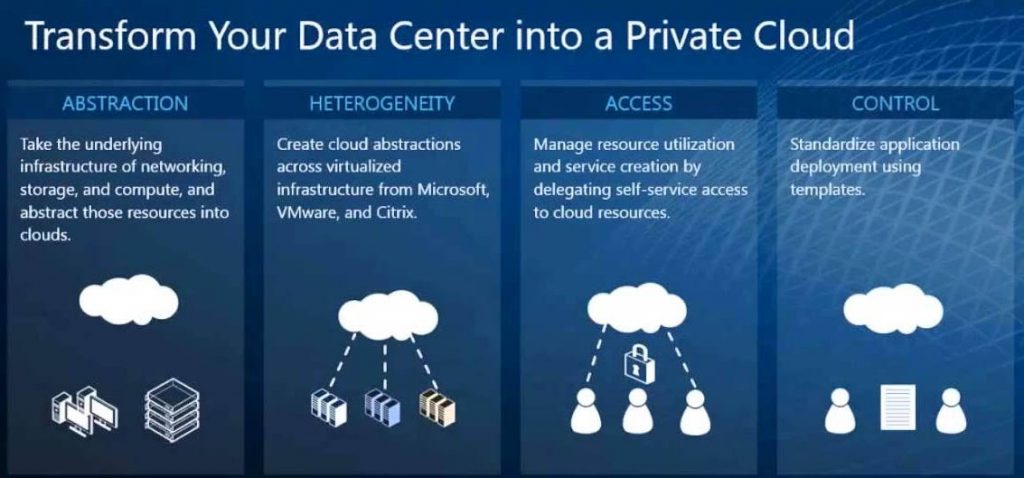Private Data Center
In need of a physical private data center for your data routing, private cloud then are we having all the needed experience - including mobile data centers.

Build a own Private Cloud
More and more services are moving into the public cloud environments, but in some situations does it make more sense to be installing services in an own private cloud setup – where their is virtual services running the different services.
We are experts in building data centers – not the actual center but espablishing the needed hardware and and the model used to build a privatye clou, that handle access permissions, firewalls, servers, containers and where needed kubernetes.
What is the private cloud?
A private cloud (also known as an internal cloud or a corporate cloud) is a type of cloud architecture that is dedicated to a single business or organisation.
In the case of a public cloud, a service provider offers his resources (like storage capacity and computing power) to a client. The private cloud on the other hand, allows organisations to use their own infrastructure. The infrastructure can be hosted either within the organisation itself or externally.
The private cloud shares some basic features with the public cloud: it is scalable, it has virtualisation capabilities and computing resources can be allocated on an as-needed basis.
private cloud + hyper-converged = love
We believe that the private cloud is here to stay, as it offers so many benefits to so many types of businesses and organizations. So what does it take to deploy a Private Cloud? Is it expensive? Complex? It can be. But not if you deploy it using a hyper-converged infrastructure.
A hyper-converged infrastructure is essentially a Private Cloud in a box: all is ready to use right after deployment. It can create and run virtual applications as well as file services while keeping them secured and accessible right out of the box.

Virtual Private Cloud
Digital Ocean offer a Virtual Private Cloud (VPC) that is lot of value for the price – this VLC id what can be used for establishing a private cloud in an existing hosting center.
Secure
DigitalOcean
Virtual Private Cloud (VPC) is a logically isolated network for cloud
resources. VPC gives you more control over how your resources
communicate, with isolation reminiscent of what you might achieve
running systems on premises.
Simple
Easily
create multiple VPCs through our developer-friendly dashboard, CLI, and
API. We automatically create VPCs for your resources when you don’t
want to customize network settings.
Customizable
Configure
your VPC to meet your precise requirements. Specify an IP address range to interconnect another network. Or configure Firewalls to control traffic in and out.
Create a VPC in seconds.
VPC pricing
Transfer to and within VPCs is free, and you can create as many VPCs as you want for no additional cost.
Transfer out of VPCs counts against resource bandwidth quotas, and any excess transfer is billed at just $.01/GiB –a price well below other clouds.
The advantages of using a private cloud
- Costs
The single most important aspect for any company is the TCO (total cost of ownership) associated with the IT infrastructure. This is the most important point where public cloud offerings cannot deliver for SMBs.
- Efficiency & control
Private clouds are hosted either on-site or on in a third-party datacenter, that is also a privately hosted environment. This gives you more control over your data and infrastructure, allowing you to intervene promptly should changes be needed. Your IT department can monitor application deployment and use advanced analytics to predict and prevent bottlenecks and downtime.
- Customization
There is no one-size-fits all solution. An important feature of private clouds is the level of customization they offer. Each organization has a set of technical and business requirements that usually vary according to company size, industry, business objectives etc.
With a private cloud, you can choose an infrastructure with specific storage and networking characteristics, so that the system meets your individual needs perfectly.
- Security & privacy
Another great benefit of private clouds is the improved level of security compared to the public cloud. All data is saved and managed on servers to which no other company has access. This greatly improves data privacy. If the servers are on-site, they are managed by an internal IT team. Therefore, the organization does not need to worry about the physical security of the infrastructure.
If servers are located in a datacenter, the same internal IT team will access the data through highly secure networks instead of using your every-day, unsecured internet connection.
- Compliance
As previously mentioned, businesses of all shapes and sizes need to comply with national/ internal laws and policies. The private cloud is an ideal option in this case, as it can be deployed in accordance with any retention and access-control policies.
For any company, customer information is considered (by law and common-sense) to be highly sensitive user data. Businesses need to have a great control over their data, in addition to ensuring data privacy. For example, in the case of a data breach, it may be rather difficult to access security logs from a public cloud. Not a problem if you own your private cloud.
- Ensuring business continuity
Ensuring business continuity is more difficult to achieve if you don’t own your infrastructure. You’re planning to stay in business for a long time and so is your public cloud service provider. But what if it doesn’t?! In this agile, constantly changing business world, there is no guarantee that your provider will stay in business longer than you will. And technology is evolving at a fast pace, we all know that.
Should your provider suddenly go out of business, it will be a long and very difficult process to migrate all of your applications and data to a new cloud. So why take any chances? On a private cloud you have privacy, control and you can ensure the continuity of your business.
The public cloud has had few failures in recent years, but the downtime caused has always created strong panic and frustration, “freezing” websites, applications, gadgets and entire businesses.
- Geographic availability
Last but not least, the public cloud is not available everywhere. There are still places in the world where the public cloud is not accessible. Moreover, if your business has several hubs across the world, the compliance requirements may vary greatly according to the location.
A private cloud environment can be build directly in the normal public cloud with added security, locally or in a real hosting center located anywhere in the world.

